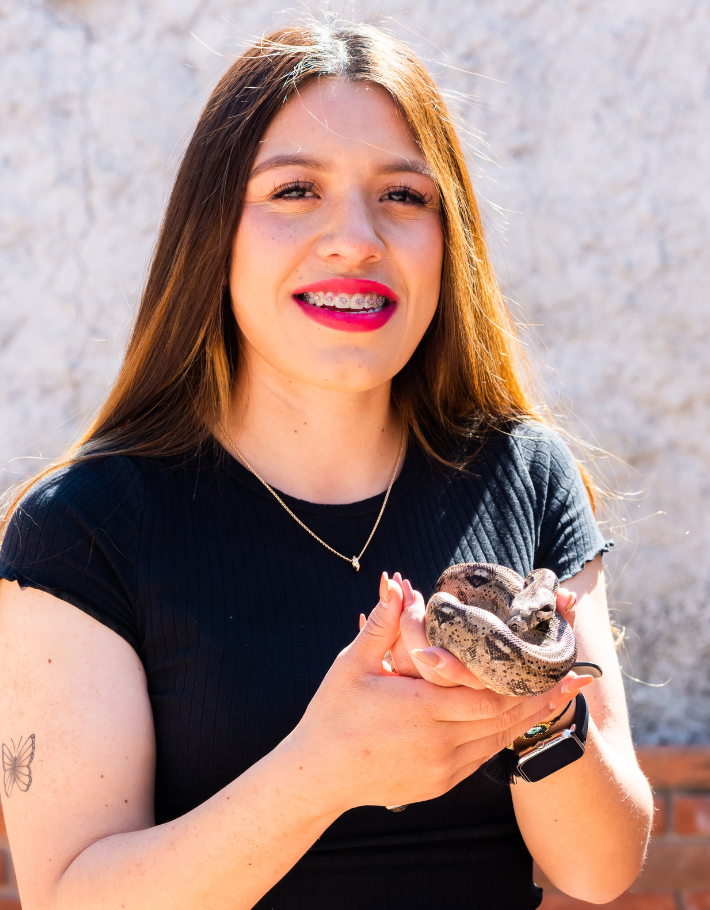Verb + Verb Patterns – Lead In
A. Context Speaking
- Do animals keep you from going out?
- How do you react when seeing spiders?
- What animals make you uncomfortable nearby?
- How do you manage fear of dogs?
- Do you avoid encountering snakes? How?
- What animals prevent outdoor activities?
- How do you cope with bird phobia?
- Do insects stop you from traveling?
- How do you handle fear of cats?
- What animals hinder your relaxation?
B. Context Listening
 |
Freya is doing a course. What job do you think she wants to do?
Listen and answer these questions.
|
Complete these sentences from the recording by using the verbs in brackets.
- I decided _______ (do) an animal management course.
- I chose _______ (study) at Fairfield College because it’s got a good range of animals and everyone’s really friendly.
- The course is only three days a week, so I’ve already started _______ (work) part-time at a pet shop.
- I prefer _______ (take) time so I can get to know them.
- I don’t even mind _______ (clean) them out.
- They’ve let us _______ (treat) some minor problems, like removing splinters from paws.
- They make us _______ (handle) all kinds of animals including spiders and snakes.
- I remember _______ (feel) really scared.
- As long as you remember _______ (do) it the way you’ve been taught, it’s fine.
- Before, if I heard him _______ (bark), I just told him _______ (be) quiet.
- Fd really like _______ (work) in either a zoo or a safari park.
All the verbs you have written in Exercise 3 follow other verbs. Which verbs are followed by:
- (object +) to-infinitive
- (object +) -ing
- object + infinitive without to
Which verb is followed by two different patterns?